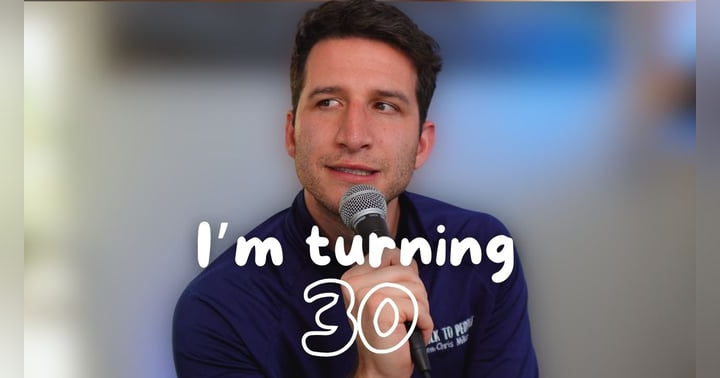Why Asking for Help is Hard—and How to Do It Effectively

The Challenge of Asking for Help
Have you ever found yourself struggling but unable to ask for help? You’re not alone. Many of us hesitate to reach out, even when we’re drowning, because asking for help feels uncomfortable, vulnerable, or even daunting. But here’s the truth: our greatest strength as humans is our ability to work together.
This blog will explore why asking for help is so hard, how to reframe your mindset, and a powerful framework—context, process, and outcome—to help you ask for help in a way that gets results while deepening your connections.
Why Is Asking for Help So Hard?
-
It Requires Vulnerability
Asking for help means admitting we don’t have it all figured out. This vulnerability can feel risky, but it’s also the foundation of meaningful relationships. -
It Means Losing Control
While we can control how we ask and who we ask, the outcome is entirely out of our hands. This uncertainty creates anxiety for many of us. -
Fear of Being in Debt
Some of us are reluctant to ask for help because we don’t want to feel like we owe anyone. We try to keep the score even, but in doing so, we miss opportunities for collaboration and connection. -
Cultural and Personal Perceptions
Society often associates asking for help with weakness or dependency. We fear being seen as needy or incapable, which holds us back. -
We Don’t Know How
Asking for help is a skill. Like public speaking or networking, it requires practice, and many of us simply haven’t had the opportunity to develop it.
Reframing Asking for Help
Contrary to the stigma, asking for help is a sign of strength. It shows self-awareness, builds trust, and creates opportunities for connection. Here’s how to shift your mindset:
- People Want to Help: Studies show helping others boosts happiness and strengthens relationships. By asking for help, you give someone else the chance to feel good about themselves.
- Vulnerability Builds Connection: When we see others ask for help, we admire their courage. Your vulnerability will inspire others and foster deeper connections.
- It’s a Skill You Can Improve: Asking for help isn’t a fixed ability. Like any skill, it gets easier and more effective with practice.
The Framework for Asking for Help: Context, Process, and Outcome
To ask for help effectively, focus on these three key elements:
1. Provide Context
Context is the “why” behind your request. Share your situation clearly and honestly so the person understands the bigger picture.
- Example: “I’m really struggling to finish this project because my laptop crashed, and I lost all my notes. I need help recreating my outline.”
Providing context not only helps the person empathize with your situation but also creates a sense of urgency and importance.
2. Explain the Process
The process is the “how” of your request. It includes what you’ve already done, what you need, and how they can contribute.
- Example: “I’ve already drafted new notes, but I need a fresh set of eyes to make sure I didn’t miss anything critical. Could you review my document for 15 minutes?”
Sharing the process shows that you’re proactive and taking responsibility. It also makes your request more actionable and achievable.
3. Define the Outcome
The outcome is the “what” of your request. It explains why their help matters and what it will achieve.
- Example: “If you could help me with this review, I’ll be able to meet tomorrow’s deadline and ensure the presentation is high quality.”
By sharing the desired outcome, you give the person a clear reason to say yes and feel invested in the result.
A Practical Example: Applying the Framework
Imagine your car battery dies, and you need help getting to work. Using the framework, your ask might look like this:
- Context: “My car battery just died, and I have no other way to get to work this morning.”
- Process: “I’ve already called my boss to let them know I’m running late, but I need a ride to the office. Could you pick me up on your way?”
- Outcome: “If I can get to work on time, I’ll be able to deliver the morning presentation without causing delays for the team.”
This approach is clear, concise, and empathetic, making it easier for someone to help you.
Overcoming Common Pitfalls
-
Avoid Hedging
Don’t undermine your request with phrases like “Feel free to say no” or “No worries if you can’t.” If your ask is important, state it confidently. -
Be Transparent
Give enough context so the person fully understands your situation. A lack of transparency can make your request seem less urgent or important. -
Show Gratitude
Always express appreciation, both when making the request and after receiving help. Gratitude strengthens relationships and encourages future collaboration.
Building a Culture of Support
Imagine a world where asking for help is normalized and celebrated. Here’s how you can contribute to that culture:
- Be open about your own struggles and requests for help.
- Encourage others to ask for support when they need it.
- Show gratitude and acknowledgment for the help you receive.
Conclusion: Why Asking for Help Matters
Asking for help is more than a skill—it’s a key to stronger relationships, bigger opportunities, and a fuller life. By providing context, explaining the process, and defining the outcome, you can make your requests clear, effective, and impactful.
If you found this guide helpful, explore more resources like How to Make Friends in a New City and Creating Third Places for Connection. And remember: life is better when you talk to people.




